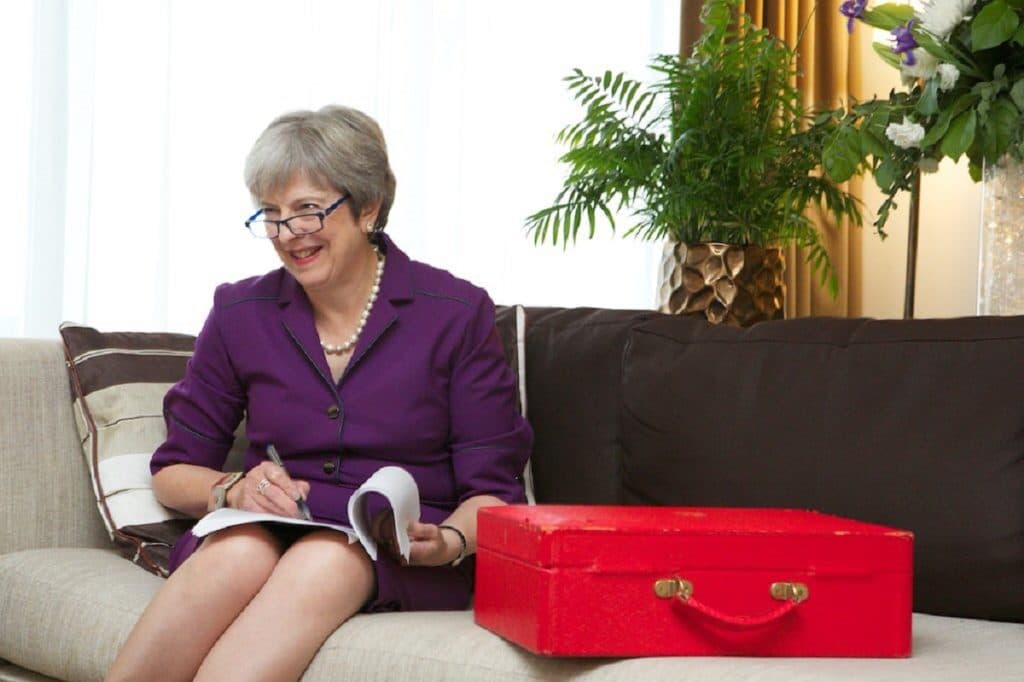British Prime minister Theresa May has said that post-Brexit, the core of the immigration system will be entirely based on skills and not quota, a move that will help Indian Software developers.
At the Confederation of British Industries Annual Conference, May talked about her vision for the UK economy after Brexit. She said that post-Brexit immigration can be a worry for business, stating she wanted a system that works for business but it “must also command the confidence of the public.”
Her emphasis was entirely focused on a skills-based approach. By saying that EU nationals would no longer be allowed to “jump the queue ahead of engineers from Sydney or software developers from Delhi,” she assured the immigrants that the current skills-based system for non-EU workers would simply be extended.
“Instead of a system based on where someone is from, we will have one that is built around the talents and skills a person has to offer”, adding “it should lead to greater opportunity for young people in this country to access training and skilled employment,” May said.
Instead of a system based on where someone is from, we will have one that is built around the talents and skills a person has to offer. #CBI2018 pic.twitter.com/lcd41tptv2
— Theresa May (@theresa_may) November 19, 2018
Under the prevalent EU rules, a non-EU worker has to go through a strict visa procedure to get a job in the UK whereas, a EU person can easily move in the country and seek an employment.
However, Carolyn Fairbairn, the CBI Director-General said, “It’s simply untrue to suggest access to European labor is dampening investment or negatively impacting UK productivity. It’s the opposite… We have built very successful businesses aided by free movement. That will come to an end, but any overnight change would cause enormous damage to our economy. It’s vitally important firms get ample time to adapt.”
May also stated her determination to deliver what is best for the national interest. Sharing her vision regarding the country, she said that the country needs to “Control over our borders, by bringing an end to free movement, once and for all. Control of our money, so we can decide for ourselves how to spend it and can do so on priorities like the NHS. Control of our laws, by ending the jurisdiction of the European Court of Justice in the United Kingdom and ensuring that our laws are made and enforced here in this country. Getting us out of those EU programs that do not work in our interests, like the Common Agricultural Policy and Common Fisheries Policy. And that is exactly what we are going to deliver.”
The Brexit deal has not been easy on May lately, with several ministers resigning including an Indian-origin minister Sailesh Vara who stepped down from the role of North Ireland minister earlier this month.
Vara said, “There is every possibility that the UK-EU trade deal that we seek will take years to conclude. We will be locked in a customs arrangement indefinitely, bound by rules determined by the EU over which we have no say,” PTI noted.
In the education sector, UK has also seen a drop in the number of international students. The All Party Parliamentary Group (APPG) for international students in the United Kingdom released a report on Nov.6 saying there has been a drop in the number of international students, including Indians coming to the UK for higher studies.
“The withdrawal of the PSW (post-study work) visa was attributed with a decline in international student recruitment in the UK from key markets, notably India. Between 2010-11 and 2016-17, the number of higher education students from India more than halved,” said the report citing Higher Education Statistics Agency (HESA) data, PTI said.
